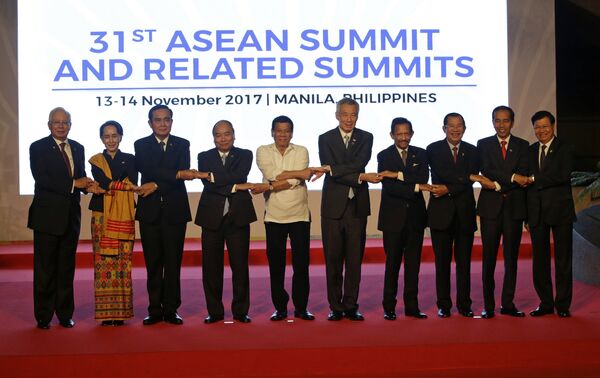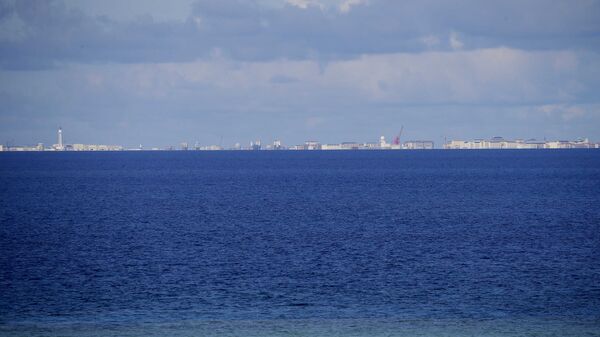The 31st Association of Southeast Asian Nations (ASEAN) summit opened in Manila on Monday. At the opening ceremony, Philippines President Rodrigo Duterte welcomed world leaders and set out some major topics of the summit, including regional security threats, such as terrorism and violent extremism, piracy and illegal drug trafficking. In addition, ASEAN countries and China are to hold talks on the South China Sea issue, in the hope of negotiating a Code of Conduct (COC) in the disputed waters.
Dr. Joseph Cheng, Professor of Political Science at the City University of Hong Kong, told Radio Sputnik that ASEAN countries will find it difficult to reach a united position on the dispute at the summit.
Sputnik: The South China Sea in on the agenda at the ongoing ASEAN summit, do you believe that participants will reach any solid agreement on this matter?
Dr. Joseph Cheng: It seems to be difficult to do that. China definitely will definitely adopt a kind of "divide and rule" approach; at the same time the ASEAN member countries tend to be a bit divided. There are countries who tend to favor China more, who have nothing to do with the territorial dispute, there are countries which feel more threatened, more involved in the territorial dispute.
But, usually they are bound by the rule of consensus, which means that it is very difficult for them to come to a consensus, to condemn or to comment on the dispute in a strong manner. The best they can achieve is some kind of vague statement on the situation, without even naming China.

Dr. Joseph Cheng: I think Beijing will be a bit surprised, I am also a bit surprised. China's basic position is that it prefers to negotiate with the countries directly concerned, directly involved in the dispute on a bilateral basis, and on the regional security, regional law and order issues.
It accepts to negotiate on a multilateral basis where the regional organization, ASEAN, is concerned. China tends to argue that the US is an extra-regional power which should have nothing to do with the South China Sea dispute and it is difficult for China to accept the US as a mediator.
Sputnik: Do you believe the [US] attempts the challenge the Chinese presence in the South China Sea amount to challenging Beijing's dominance in this area and if so, how will Beijing actually take this?
Dr. Joseph Cheng: China understands that it is no position to dominate the region, as yet, and ASEAN doesn't want to see any country to be in a position to dominate the region so China has to be careful.
At the same time, China understands and almost accepts, for the time being, a very strong US military presence in the region and that is exactly why it is interested and has already secured some confidence-building agreements with the US. For example, agreements to avoid escalation of conflicts, agreements on how to behave during maritime and air traffic accidents and so on.


